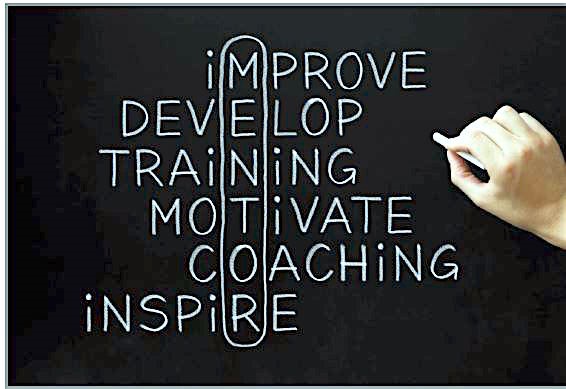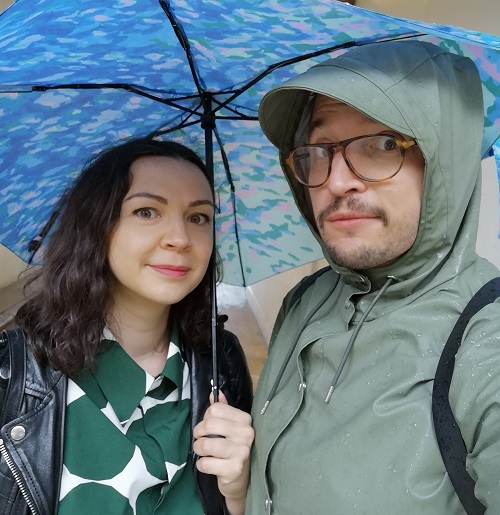Dame Judi Dench credits her former mentor, Peggy Ashcroft, with “changing the course of her life”. Five-time Formula One world champion, Lewis Hamilton, feels the same about his late mentor, Niki Lauda. Bill Gates describes his longstanding mentor, Warren Buffet, as “one of a kind”. Even in fiction we see our much-loved characters guided and shaped by their mentors; just think how Dumbledore shapes Harry Potter or Yoda guides Luke Skywalker’s Jedi journey.
Mentoring offers one of life’s richest learning opportunities and enables us to move forward faster, yet too many of us miss out on this unique relationship because we misunderstand it. This article dispels seven mentoring myths to help anyone who has never considered mentoring to reconsider the benefits – for themselves and others.
- Mentoring is only for those in business. While mentoring is a business staple it’s by no means confined to the corporate arena. Mentoring can bring lasting positive change to our personal lives as well as our professional ones. Play a sport? Want to write a novel? Becoming a parent for the first time? Perhaps you’re thinking of upping sticks and moving to another country? A mentor can help. “Show me a successful individual, and I’ll show you someone who had real positive influences on his or her life… a mentor.” Denzel Washington
- All mentors are wise owls. There’s a misconception that mentors are well-established in their field and have all the answers. They don’t, and neither do they need to. Anyone can mentor. Great mentors offer their time, their experience and their brain power to help us figure things out for
ourselves. They inspire, encourage and guide us because they believe in us. “To be a mentor… you don’t have to know how many square miles are in Idaho, you don’t need to know the chemical makeup of chemistry, or of blood or water. Know what you know… care about what you know, and care about the person you’re sharing with.” Maya Angelou
- Mentoring is not either/or. We can be both a mentee and a mentor at the same time. Just because we are expanding our learning in one area doesn’t preclude us from sharing our experience in another. We can also have more than one mentor. Different people have different strengths, so
it makes sense to have multiple mentors to learn from their differing skillsets.
“When it comes to mentoring the best rule of thumb is to be one and have many.” Karin Mueller
- Only formal mentoring schemes work. Formal mentoring schemes are great, especially in the workplace when tied to wider organisational goals, but they aren’t the only way to go. Some of the most powerful mentoring relationships develop organically. We might never formally label the relationship ‘mentoring’ but if you reach out to someone when you get stuck or are that person to someone else, you’re probably in an informal mentoring relationship.
“Mentors are all around us. Who makes you feel confident, inspired, focused and is willing to share their experience?” Anna Letitia Cook
- Mentoring is one way. There’s a common assumption that it’s the mentee that benefits from a mentoring relationship and that the mentor is there out of altruism. Nothing is further from the truth. Mentors learn as much, sometimes more, as their mentees. Those insights and learnings are particularly profound when we partner with someone from a different background. Contrary to popular belief, the less alike a mentor and mentee, the stronger the benefits. The unlikeliest of matches can be truly groundbreaking. “What the mentor gets is the great satisfaction of helping somebody along, helping somebody take advantage of an opportunity that maybe he or she did not have.” Clint Eastwood
- Mentoring must be in person. If we’ve learned one thing from the pandemic, it’s that being physically in the same room for meetings is often unnecessary, inconvenient and overrated.
Mentoring is no exception. There are no rules for how to connect, how often or for how long. In
our digital world finding a mentor and connecting with them has never been easier. But whether it takes place in the virtual or real world, what matters is building and maintaining the relationship
in a way that works for both parties. “I’ll happily mentor anyone who wants mentoring, and most of that goes on by internet rather than face to face.” Bernard Cornwell
- Mentoring is forever. Diamonds are forever, not mentoring. Entering a mentoring relationship is neither a marriage, nor a lifelong prison sentence. Short and sweet will beat long and lacklustre every time. Being clear from the outset about what the relationship will look like (what the goal
is, how long the relationship will last, time commitment and ways of working) significantly influences success. “It’s always good to have a helping hand at the start. I wouldn’t have got anywhere in the airline industry without the mentorship of Sir Freddie Laker.” Sir Richard Branson
Mentoring is shrouded in myth, much of which prevents too many exploring and experiencing its magic. If you’ve been missing out until now, hopefully these myth busters encourage you to reconsider because, regardless of where we live, what we do, our life stage or even our age, we can each benefit by being mentored or becoming a mentor.
Karin Mueller is an executive and career coach, leadership consultant, trainer and facilitator. Following an international corporate career spanning two decades she founded Liebfrog, a leadership development consultancy which gives professionals the courage and skills they need to lead with clarity and decency.
Based in London, Karin works with organisations and individuals across the globe. www.liebfrog.com
This article is taken from the Jun-Jul-Aug issue of the FOCUS magazine





